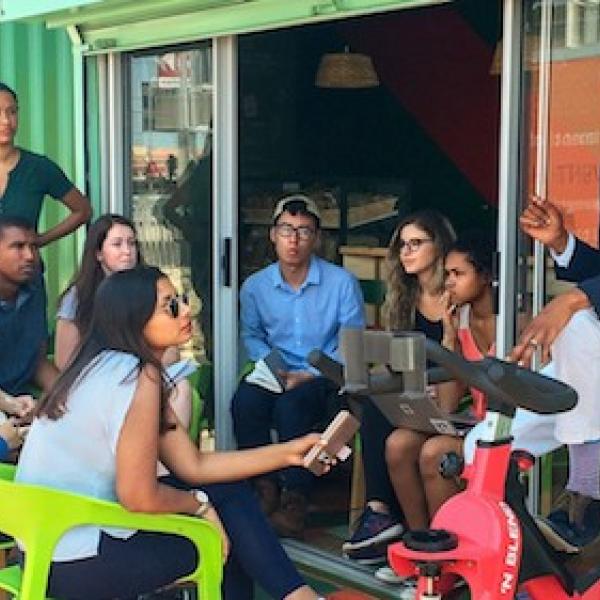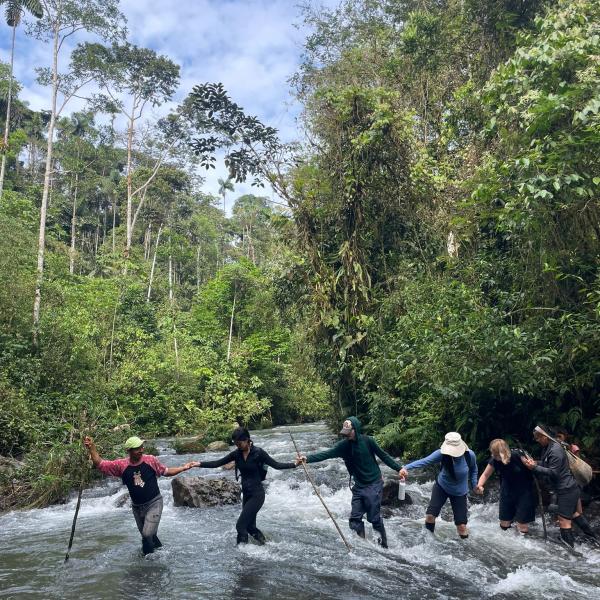Overview
Funding up to $2000 USD is available to CALS undergraduate students for research expenses, including travel to a professional meeting or conference to present findings. Funding may not be used as a stipend for students conducting the research. Students are advised to work with faculty members to develop scientifically relevant and well-circumscribed research proposals.
Students apply via the undergraduate research grant application and the committee with match award winners with the grants listed below.
The following is a list of all undergraduate grants offered by the Office of Academic Programs.
- The Cornell University Agricultural Experiment Station (Cornell AES) has made available $25,000 this year for supplementing current Hatch or Multistate projects where the principle investigator is mentoring a College of Agriculture and Life Sciences undergraduate student in research associated with that Hatch project. Twenty-five projects will be supplemented with $1,000 each to support the undergraduate student's research. The student should be engaged in independent research (i.e. involved in the research process more than doing "busy work" to earn an income).Projects awarded this supplement in Federal Year '24 (FY24) must be spent by September 30, 2025.
- The Dextra Undergraduate Research Endowment Fund enables talented undergraduate students in genomics/life sciences and/or environmental sciences to perform undergraduate research. Undergraduate students in the College of Agriculture and Life Sciences are invited to submit proposals. Several grants of up to $2,000 will be made each year.
- The Cornell University Agricultural Experiment Station (Cornell AES) has made available $4,000 this year for supplementing current McIntire-Stennis grants, where the principal investigator is mentoring a College of Agriculture and Life Sciences undergraduate student in research associated with that McIntire-Stennis Grant.
- The Jane E. Brody Undergraduate Research Award funds undergraduate students in the College of Agriculture and Life Sciences Research Honors Program. Up to $500 of funds per student is available. Undergraduate students in the College of Agriculture and Life Sciences are invited to submit proposals.
- S. Ann and Robert R. Morley have provided funds to support research by undergraduate students in the College of Agriculture and Life Sciences. The primary objective is to increase the involvement of students in research in the agricultural and life sciences. Undergraduate students from the College of Agriculture and Life Sciences are invited to submit research proposals in competition for funding. Applicants may be individuals or groups; projects may involve basic or applied research. At least four proposals will be chosen for a maximum of $1,500 each. No student may receive the award for more than two consecutive years.
- Fredric (Fred) N. Gabler ’93 was a CALS alumnus who was killed in the September 11, 2001 tragedy. The Gabler Endowment was established by friends of Fred Gabler and his family to ensure the continuance of the honors research program in CALS. The fund will provide financial assistance to an undergraduate researcher enrolled in the CALS Research Honors program.
- The Michael W. Berns BS ’64, MS ’66, PhD ’68 Undergraduate Research Award provides support to undergraduate students enrolled in the College of Agriculture and Life Sciences performing research in the life and environmental sciences. The fund will provide financial assistance to an undergraduate student working with a faculty member on a research project, which may take place during an academic semester or over a summer.
Grant Proposal Application Instructions
Proposals must strictly adhere to the guidelines described below; those that do not may be returned.
Proposals should include:
- Cover Page/Application Proposal for Research funds. Students with Microsoft Word may fill out the application digitally. Eligible applicants may apply to more than one program using a single application.
- Statement of Objectives and Significance
- Brief Review of Relevant Literature
- Description of Methodology (detail adequate to evaluate the probability of project completion; statement(s) of expected results helpful if known)
- Time frame (research to be completed within a 12-month period)
- Detailed and itemized budget including separate section for travel related expenses (if applicable)
- Literature Cited
Additional considerations:
- Proposals should be written in 12-point font with single or double spacing between lines and at least 1-inch margins. Abbreviations within the proposal must be defined. No appendices may be included.
- Undergraduate grant proposals are restricted to a maximum of 2 pages, excluding cover page and list of literature cited.
- The budget should list the actual project cost; other sources of funding received, expected, or for which the student has applied; and the amount of funding requested from the Office of Academic Programs, including an explanation of how those funds will be used.
- Funding for travel related expenses may only be approved for travel to countries listed in Zone 1-2 in the Travel Advisory Level by the US Department of State
- If the student has already received funding for this research from one of these sources, an additional page must be added to the proposal describing the research progress.
- Computers and software purchased with these funds are the property of Cornell University and must remain at Cornell after the student graduates.
- All undergraduate proposals must be reviewed by the student’s research mentor and revised according to his/her recommendations. The final proposal must be signed by the research mentor before submission to the Office of Academic Programs.
A sample proposal is available for review: sample #1.
Funding is limited to full-time students only.
These awards can be used for research or travel related to research, including attending research conferences.






